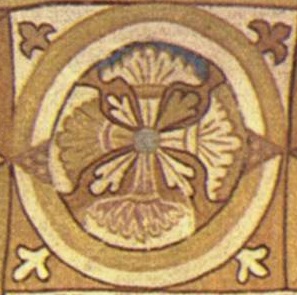The European Middle Ages to the beginning of modern times represents a field of excellence within the Faculty of Arts of the University of Lausanne. The professors teaching in this field have gathered their expertise in order to provide an interdisciplinary programme, which allows students to work at the point of current research. Students will thus be able to pursue their own research in preparation to a mémoire in the medieval field.
This programme allows participants to acquire research experience within an interdisciplinary group under the guidance of several professors. The vision is academic, with the emphasis on interdisciplinary breadth and specialisation, but includes opportunities for professional development such as teaching, editing, and working in archives and libraries.
This programme, in principle, is designed for students who study English, German, medieval French, Italian, History of Art, History or Philosophy as a principal discipline of a master degree.
TOP ^
Public Course (MA-SPEC-CCRMA 01)
4 ECTS credits
Spring, March/April, Palais de Rumine; Thursdays, 6-7pm.
Program: click here
This combination of workshops and public course aims to expand the knowledge of the students through an interdisciplinary approach and the exposure to various work and research methodologies. Attendance at both is compulsory. Students receive credit by successfully writing a scientific paper based on Workhsop I, or one of the conferences.
This module is compulsory, but can exceptionally be replaced by an internship.
Seminar of interdisciplinary research (MA-SPEC-CCRMA 03)
2h, 1 semester or block course, see hours and rooms below - 10 ECTS credits
Please click this link to display the list of seminars and the room numbers.
The seminar allows students to improve their competencies in the field of their preliminary experience of research and to learn how to actively manage interdisciplinary subjects. An 'open' course is included to expand the choice beyond the regular courses offered. As part of these seminars, students registered in a programme of specialisation will hand in an additional piece of work, highlighting the inter-disciplinary perspective connected with their own research for their master dissertation. Students receive credit for this module by successfully completing the seminar work.
This module is compulsory.
Intership
4 ECTS credits
Internship can involve work experience in archives, a library, or a museum in the following areas: analysis, inventory, cataloguing, and translations. An internship may also involve specialised studies in another centre for medieval studies in the following areas: editing, work on manuscripts, thematic and interdisciplinary research on a specific subject. The internship must be full time over a period of two to three weeks.
Students receive credit by successfully submitting a report of the internship activities.
This module is optional, but can exceptionally replace the module "Workshops and Public Course (MA-SPEC-CCRMA 01).
Supervised preliminary research work
Changeable hours - 16 ECTS credits
Supervised preliminary research work includes translation or preliminary research work based on a medieval or early modern corpus. It may be preparation of a publishable article, from a secondary theme of a master dissertation, the editing or translation of a medieval text into a modern language, or a translation of scientific texts connected to the Middle Ages. Students receive credit for this work through continual supervision.
This module is optional, but can exceptionally replace the participation to a colloquium (MA-SPEC-CCRMA 02).

